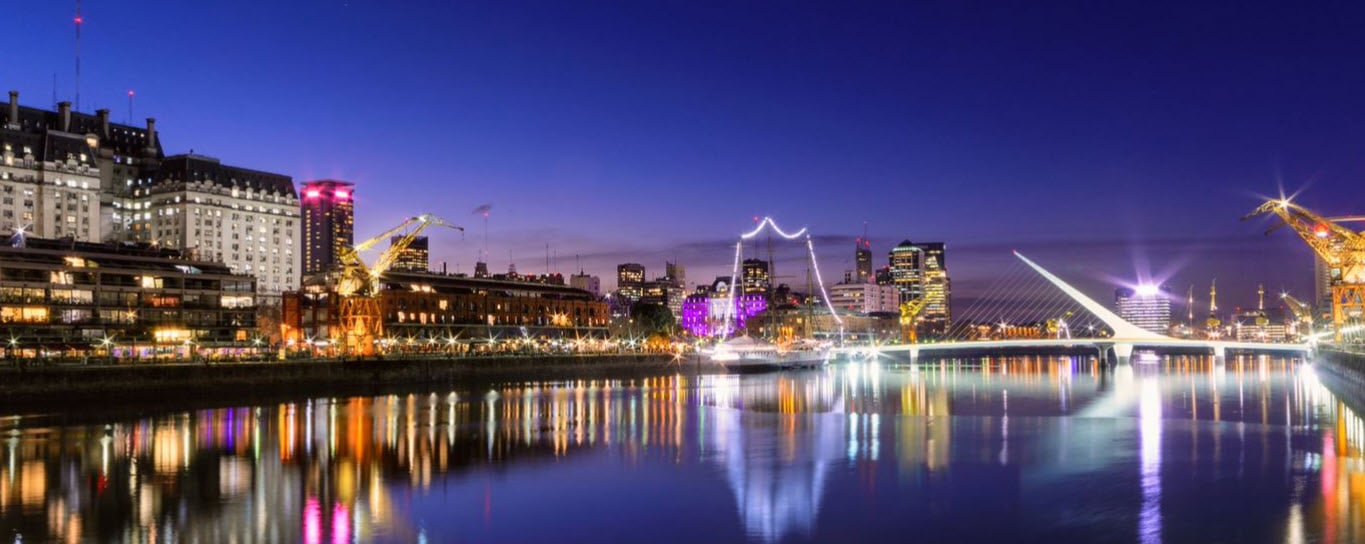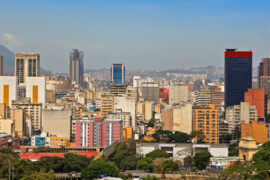In brief
On 29 May 2023, the National Executive Power (“PEN“) sent the Liquefied Natural Gas Promotion Bill (“Bill“) to the Honorable Chamber of Deputies of the Nation. The Bill, while still a draft, creates a Promotional Regime for Large Liquefied Natural Gas Investment Projects (“Regime“) for the production, storage, commercialization, transportation and infrastructure of LNG (“LNG Projects“) and/or its export, through the granting of tax, customs and exchange control benefits (“Benefits“).
Interested companies and investors (“Interested Parties“) registered in the Regime will enjoy tax stability for up to 30 years after the start of the LNG Projects. In addition, they will be entitled to:
i. Accelerated amortization of income tax on personal property and infrastructure works.
ii. Refund or credit on the Value Added Tax (VAT) on capital goods and/or infrastructure works.
iii. Exemption from import duties, VAT and fees for port, airport, statistical and verification services for goods or spare parts used in LNG Projects.
iv. Reduction of the income tax rate to 30% (without which these projects will be most likely subject to a 35% income tax rate).
v. Updated compensation of tax losses for up to 10 years.
vi. Deduction of interest and exchange differences arising from the financing of the LNG Project.
The Regime adds access to 50% of the foreign exchange generated from the first LNG export (for specified purposes) and exchange rate stability, both for 30 years.
In depth
The most important aspects of the Bill are:
- Creation of the Regime: Interested Parties may join the Regime by submitting an LNG Project within five years of the Bill being passed.
- Authority in charge of application: The National Secretariat of Energy (“Application Authority“) shall be empowered to issue complementary, clarifying and operative regulations.
- Eligibility criteria for Interested Parties in LNG Projects: The LNG Projects must contemplate a minimum aggregate investment of USD 1 billion to be reached within six years from their approval and a minimum production capacity of 1 million tons of LNG per year. The Application Authority shall evaluate the technical, economic and financial suitability of the Interested Parties and the sufficiency of the supply sources.
- National content requirements: During the first 10 years of the law’s effectivity, the national content must be at least 15%; from the 11th to the 20th year, 30%; and from the 21st to the 30th year, or the completion of the LNG Project, 50%.
- Tax benefits: The Bill provides for the beneficiaries of the Regime (“Beneficiaries“):
i. Accelerated amortization of income tax.
a) For depreciable movable goods, at least in four equal and consecutive annual installments
b) For infrastructure works, at least in the number of annual, equal and consecutive installments resulting from a consideration of its estimated useful life reduced by 50%
ii. VAT credit or refund for capital goods and/or infrastructure works.
Beneficiaries shall be entitled to claim the VAT credit or refund (for acquired capital goods or infrastructure work) after at least one fiscal period since the investment. The tax authority (AFIP) should credit the VAT against other taxes or refund it to the taxpayer within 60 calendar days after the respective application has been filed.
iii. Updated compensation of tax losses for up to 10 years.
Such losses may be adjusted according to the Consumer Price Index published by the National Institute of Statistics and Census, under certain specific rules indicated in the Bill and depending on whether the tax losses exceed five years and the prior inflation rate.
iv. Exemption from import duties, VAT and fees for port, airport, statistical and verification services for goods or spare parts used in LNG Projects.
Imports of capital goods, spare parts, parts, components and inputs involving LNG Projects shall be exempt from these taxes, provided that no domestic production of such goods is available, or, when such production exists, that its quantity or quality is not appropriate for the project.
Provided certain requirements are met, the same benefits shall apply to the import of used ships — including their equipment and components — or other used naval artifacts.
v. Fiscal stability for 30 years on the approved LNG Project and with extensive application to holders of exploration permits and exploitation concessions dedicated exclusively to the LNG Project.
During the tax stability, the total tax burden determined at the time of the submission of the LNG Project should not be increased. The stability does not apply to VAT.
vi. Export duties.
The export duty rate will be 0% if the FOB value is equal to or less than 15 USD/MMBTU and 8% if it is equal to or greater than 20 USD/MMBTU. If the FOB value is in the middle of these two values, a calculation will be made as set out in the Bill.
- Access to the foreign exchange market: The Beneficiaries will have the free availability of up to 50% of the foreign currency arising from the exports proceeds from the LNG Project to be used for capital, commercial and financial obligations, and/or remittance of profits and dividends.
- Regulatory stability: The Beneficiaries will enjoy the guarantee of regulatory stability, which will imply the inapplicability of future amendments to the Bill as well as regulatory and/or complementary rules that alter the provisions of the Bill.
- Authorization for firm export of LNG: Beneficiaries shall be entitled to apply and opt among:
i. A firm export authorization for the projected volumes of LNG described in the LNG Project for 365 days per year for 30 years, or the shorter term required in the application for the start-up of the LNG plant (onshore or floating) or its extensions or successive stages, provided that one or more dedicated pipelines operated exclusively for its LNG Project and isolated from the transmission system, and forming part of its LNG Project, are used to transport the natural gas to the liquefaction plant (onshore or floating).
ii. A firm export authorization for the projected volumes of LNG described in the LNG Project and produced between January to May and September to December of each year for 30 years, or the shorter term required in the application for the start-up of the LNG plant (on land or floating) or its successive expansions or stages, provided that such production does not affect the natural gas transportation capacity intended to supply the priority demand
iii. Individual export authorizations for LNG produced by the LNG Project by cargo, after offering it to the domestic market, in accordance with the procedure to be established by the regulations of the Bill
- Dedicated pipeline transport concession:
The Beneficiaries that invest in liquefaction plants (on land or floating) with a dedicated pipeline to transport natural gas exclusively for their LNG Project (which is isolated from the natural gas transportation system) will be entitled to a transportation concession under Law No. 17.319 to build and/or operate such dedicated pipeline.
- Environmental permits: Will be indispensable for accessing the Benefits.
- Arbitration: PEN can submit any dispute or controversy arising from the application and/or interpretation of the Regime to arbitration.
Click here to read the Spanish version.






